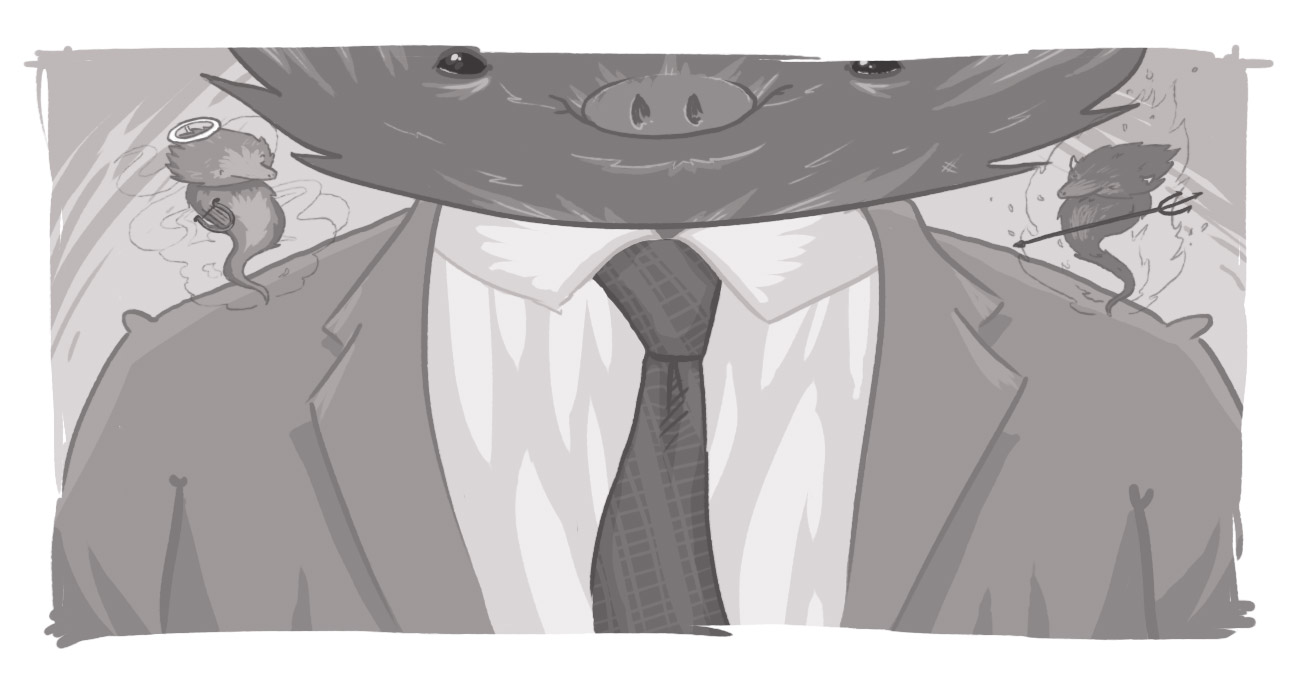A Structural Model for Effective Anonymous Commentary

Just how open should open comments be? And at what point does comment become unfair? Since the Internet is extremely Id-focused, there's nothing wrong with adding an artificial Super Ego to your business communication options.
Peter Parker's Uncle Ben said it best: with great power comes great responsibility. Of course, the key word to keep in mind is "great" because, as John Emerich Edward Dalbert Acton so eloquently stated: "Absolute power corrupts absolutely." And that's the danger that outweighs any of the potential benefits of stealth sharing apps like Leak.
I'm an advocate of anonymity in many realms. I used to work in an environment where the party line was "open and honest" but the reality was any dissension would be met with ramifications. Anonymous surveying was the only way to get even a modicum of the truth out.
There's a responsibility with anonymity. If you are going to be granted absolute free speech, it's not intended to be abused. It must be respected. And that's why, when it comes to on-line commenting, letting the Id run free may not be the best idea. The imposition of a little cyber Super Ego is never a bad thing – especially if it means our Digital Ego can rule the roost.
So here's a quick, dime-store overview of the structural model:
- Id: Our wants, needs, and desires. All about gratification;
- Ego: Our checks and balances – trying to satisfy the Id without causing too much long-term trouble for ourselves; and
- Super Ego: Society's rules, familial guidance, and lessons from authority figures internalized. Basically a conscience imposed upon us and developed externally.
I do believe, maybe naively, that most people on-line are good, respectful people who behave very much as they would off-line. They have that normal, human balance of all three. Sure, you may want to say something, but you think better of it, or rephrase it in a productive manner. But there are those Keyboard Cowboys who practice anonymity without accountability. They are emboldened by the anti-personal-interaction nature of the Internet to say things they would never do face to face.
Their Id runs free because they're doing nothing more than indulging a puerile need for immediate self-gratification, without consideration of any other factors. And that type of behaviour is what causes many people and businesses to restrict commenting on their sites -- after all, most companies understandably don't want inflammatory, negative, or even plain ol' libellous statements about them to exist in the Internet in any way shape or form.
The sad thing is that you're potentially missing out on a lot of valuable information. Your harshest critics can often be your most passionate potential advocates. To have such a visceral reaction to your company or product, they must have a vested interest in your brand. If you can address or resolve their issues, it's an incredibly powerful business-building opportunity.
It takes mutual respect and an understanding of the process. Start with the Super Ego. It's something that you, as a business, can instill up-front by setting ground rules for interaction. On the other side, there should be an expectation of good behaviour – a manifestation of the user's Ego working to balance the unfettered desires within the confines of social constructs.
Set the ground rules up front, allow commenting with moderation, and don't be shy to expel those who are clearly there only to cause problems (not those 'fake trolls' whose only crime is that you don't agree with them.)
It's really not that hard. Back in my editorial days I learned a valuable lesson that I continue to apply in every opinion-based thing I write: It's not enough to criticize or point out faults. If you are going to offer an opinion, make sure it comes with a solution.
Or, in simple terms, it's easy to say, "You suck. That's stupid!" The real value, though, comes from providing a solution to help rectify the situation. It's the difference between working to solve a problem and simply running around pointing fingers.
The greatest problem with Id-heavy products like Leak is that it devalues commentary altogether. How many times have you read someone write, "Oh, I never read the comments." But that's where new perspectives, added context, and discussion can flourish. Unfortunately, they often descend into the pits of puerility.
And that's where anonymity suffers its greatest abuse – when empty words render all comments worthless.
Your customers and clients are your best resource for improvement. Some are more passionate in their delivery than others, but there's tremendous value in every piece of constructive criticism, praise, and idea-sharing.
You just have to make sure you have a Structural Model in place.
What are your thoughts on anonymity? Are you an advocate? Anti-anonymity? Somewhere in between?
Should I allow online comments?
What is Leak?
SUBSCRIBE TO OUR E-NEWSLETTER
 Subscribe
Subscribe


